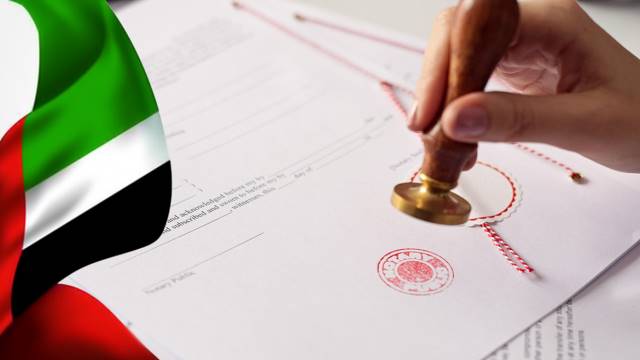Practical Techniques for Managing Relationship Stress
Key Takeaways
- Understanding familiar sources of relationship stress can aid in managing it effectively.
- Implementing effective communication strategies is crucial for resolving conflicts.
- External resources can provide valuable support and additional strategies for maintaining a healthy relationship.
Identifying Common Sources of Relationship Stress
For many people, relationships may be a significant cause of stress. Typical sources of relationship stress include financial issues, lack of communication, and differing life goals. Financial stress can manifest through unpaid bills, debt, or differing views on spending habits. Communication leads to better understanding, while differing life goals create a disconnect between partners. Recognizing these stressors early can help couples address them before they escalate. Proactive identification allows for more thoughtful and strategic solutions, fostering a healthier relationship dynamic.
In bustling cities like New York, the fast-paced lifestyle can add an extra layer of stress. The pressures of urban living, such as demanding jobs and limited personal time, can exacerbate existing relationship issues. It’s essential to understand that everyone’s experiences and challenges are unique. Seeking support from qualified New York Psychotherapists can offer tailored strategies to mitigate these stressors. Professional guidance can make a significant difference in navigating the complexities of urban relationships.
The Importance of Open Communication
Open communication is essential in any relationship. It involves active listening and expressing feelings and thoughts honestly. Without such transparency, misunderstandings and resentment can build up, leading to conflict and stress. According to Psychology Today, open communication helps couples manage conflicts more skillfully, which promotes a stronger bond. Open communication between partners fosters a greater level of trust and understanding.
Effective communication also means discussing complex topics without fear of judgment or backlash. Issues such as finances, intimacy, and plans require honest dialogue. Establishing a routine for check-ins can foster an environment where both partners feel secure enough to be vulnerable. In turn, it can act as a preventive measure against the buildup of unresolved issues.
Effective Conflict Resolution Strategies
- Remain Calm: By taking a few deep breaths and counting to 10, both sides can address the situation more rationally and less emotionally. Stress and emotions can cloud judgment, making it harder to resolve conflicts rationally. A calm demeanor allows for clearer thinking and more productive discussions.
- Listen Actively: Summarizing what the other has said before responding ensures that each partner feels heard. That shows respect and confirms understanding, reducing the likelihood of miscommunication. Being present in the discussion without interruptions or prepared answers is a prerequisite for active listening.
- Compromise: Achieving a happy medium for all sides might help resolve disputes amicably. Compromise is vital in relationships, as it demonstrates a willingness to make concessions for the greater good of the partnership. This flexibility can prevent disputes from escalating into more significant issues.
Implementing these strategies requires practice and patience. They may not resolve every issue immediately, but they can build a more resilient and empathetic relationship over time. Consistent application of these techniques can transform conflict from a destructive force into a constructive one.
Seeking Professional Help
Sometimes, relationship stress may require professional intervention. Counselors may offer insightful advice and practical tips for enhancing relationships’ well-being. Professional guidance is particularly beneficial for chronic issues that couples struggle to resolve independently. Studies have shown that couples who seek professional help have a higher success rate in resolving chronic issues.
Both spouses may freely communicate their issues in a neutral setting in therapy. Therapists employ evidence-based techniques to address communication barriers, unresolved conflicts, and emotional disconnects. Regular sessions can significantly improve relationship satisfaction and stability. Moreover, therapy can equip couples with the tools they need to handle future stressors more effectively.
The Role of Self-Care
Although it is frequently disregarded, self-care is essential for handling marital stress. Engaging in activities that nurture one’s mental and physical well-being can provide the energy and resilience to tackle relationship challenges. Self-care routines like regular exercise, a balanced diet, and enough sleep can improve general well-being.
Additionally, setting aside time for personal interests and relaxation can act as a buffer against stress. People who are confident in themselves are better able to make constructive contributions to their relationships. Encouraging each other to prioritize self-care can lead to a more balanced and harmonious partnership.
Maintaining Individuality in a Relationship
Balancing personal identity with a collective partnership is essential. While it’s crucial for couples to share common goals and activities, maintaining individual interests and hobbies is equally vital. This balance ensures that both partners remain fulfilled individually, strengthening the relationship.
Maintaining friendships and other social connections outside the relationship can provide additional support and perspective. Engaging in personal growth opportunities, such as pursuing new skills or hobbies, can enrich the relationship by bringing new experiences and viewpoints. Recognizing and appreciating each other’s individuality fosters respect and admiration, critical components of a healthy relationship.
Creating a Supportive Environment
A supportive environment involves mutual respect, understanding, and encouragement. Building trust and support can significantly reduce relationship stress and promote long-term happiness. Supportive behaviors include:
- Celebrating each other’s successes.
- Offering emotional comfort during tough times.
- Maintaining a positive and non-judgmental attitude.
Creating a nurturing home environment can also contribute to relationship health. Whether through shared activities, regular date nights, or simply spending quality time together, fostering a sense of connection and teamwork can reduce stress and enhance relationship satisfaction. A supportive environment protects against external and internal stressors, allowing the relationship to thrive.







